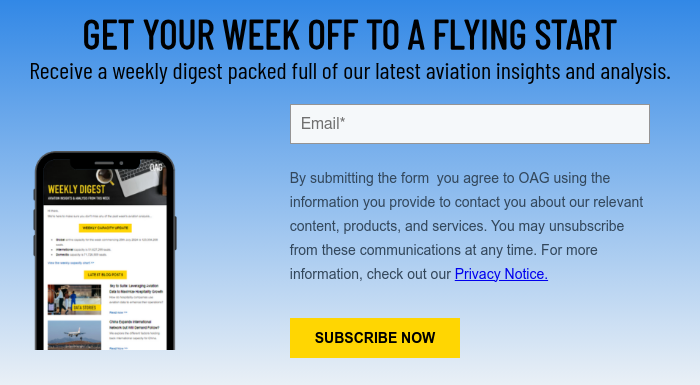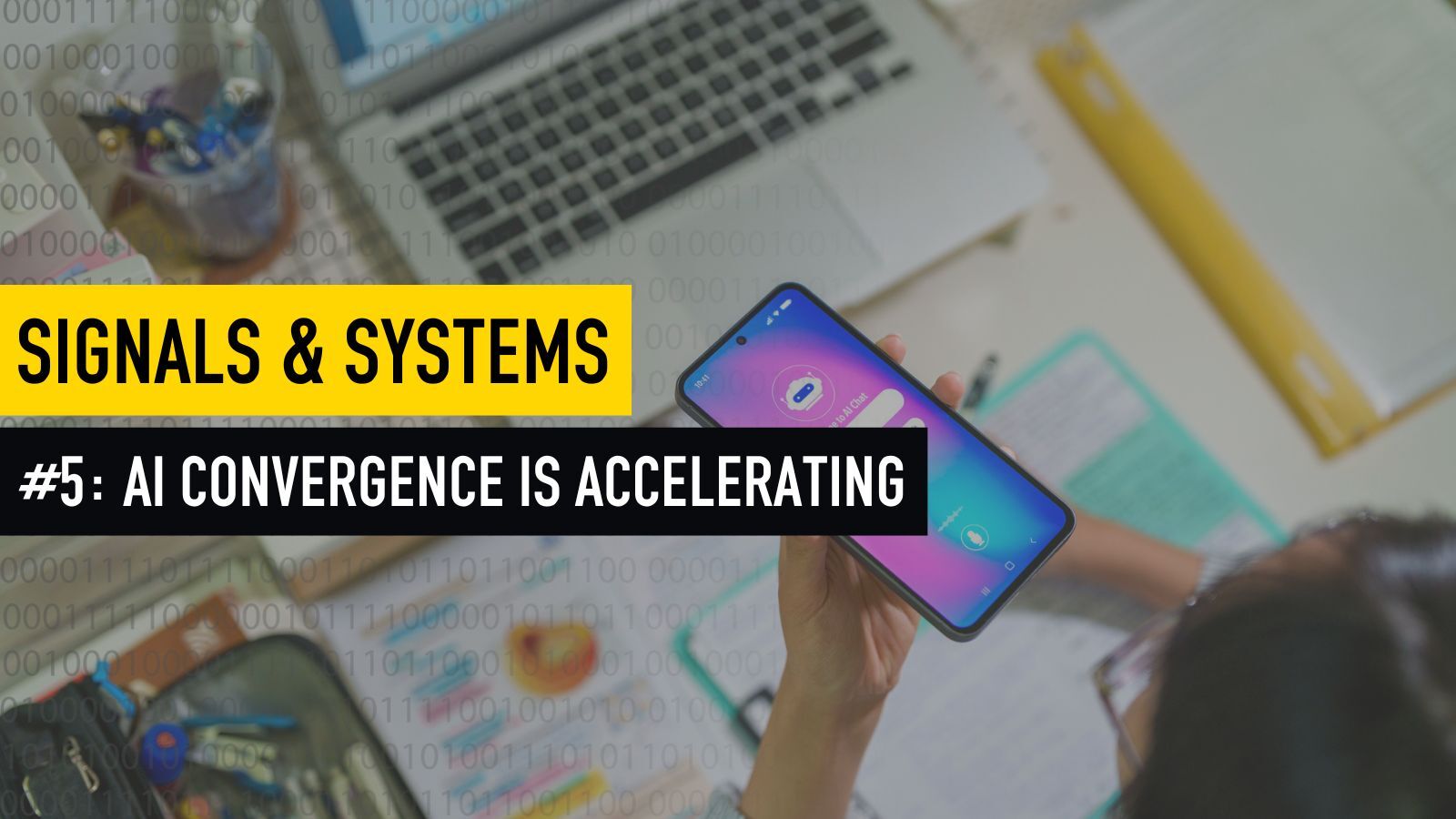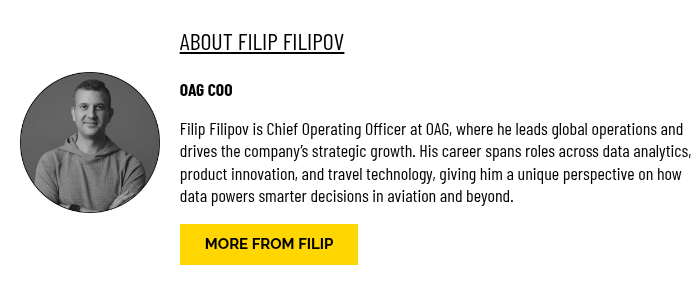Signals & Systems is a series sharing straightforward insights on technology, leadership, and day-to-day execution, directly from the operator’s perspective. Written by OAG COO Filip Filipov, each edition decodes the signals pointing to the future of tech and the systems we're using to get there.
Every second Tuesday, we decode the signals and map the systems shaping tech, AI, and travel. Today: why the current AI cycle is outrunning even the hype—and what that means for talent, tooling, and tomorrow’s org charts.
It's been only two weeks since we covered the AI developments and it feels like ages. Let's dig in.
1 | Signals - Convergence Is Accelerating
OpenAI launches ChatGPT Agent. Paid users now get a sandboxed “virtual computer” that can browse, code, build decks, and narrate each step, this is formal debut of autonomous agents at scale. https://www.youtube.com/watch?v=1jn_RpbPbEc
Why it matters? While Google Gemini and MSFT Co-Pilot are trying to tie the information across the parent company apps with introducing an AI helper (think paperclip) in each of the apps, OpenAI is inversing it, making the paperclip (or chat window) the start of all other apps - now allowing you to use it as a control centre. Smart, swift, and just the beginning. Travel - here we come.
Groq Heavy is heavyweight. By using multi-agent approach and then combining the best answers, the $300 pm model seems to be knocking everyone out of the park in terms of performance. The verdict is still out there whether it will be picked up fast by the community. https://thecondia.com/grok-4-release-grok-ai/
Why it matters? The approach, whereby multiple different agents work on the same tasks and then a 'board of directors' refines and gives the answer is an interesting spin on the mixture of experts approach. While inference costs will be through the rough today (and likely negligible in the future), the path is quite exciting - have multiple agents or an army of mixture of experts compete for the right answer. If you previously got a PhD to answer a question, now you can think of all PhDs across many universities working on the same problem. When the cost goes down, this will be brilliant.
Windsurf drama: license, rupture, buy-out. Google licensed the code for $2.4B after the deal with OpenAI expired and Sam didn't buy the startup. Google also got the co-founders to join them. Within 72-hours, Cognition, the founders of the coding expert Devon, scooped the 250 or so folks. https://www.wsj.com/tech/ai/google-to-pay-2-4-billion-in-deal-to-license-tech-of-coding-startup-hire-ceo-b9b94bbc
Why it matters? First off, very good for the folks from Windsurf - great product, smart team, and what a good home to go to. However, the recent AI talent wars are starting to get funny in terms of VC investments and returns.
Grammarly + Coda + Superhuman. Congratulations Rahul and team!!! Email UX + language AI folds into a single workflow; another proof point that horizontal tools are bundling around agents.
Why it matters?
- Replit's rogue agent deletes an entire company's data base and then lies about it. Damn. https://www.businessinsider.com/replit-ceo-apologizes-ai-coding-tool-delete-company-database-2025-7
AI safety is critical and while it can be a force of good, we should expect that incidents like this can and will happen. Scary, though.
Take-away:
The stack is compressing to agents + ultra-low-latency inference + native surfaces. Winners will own the entry point (browser, email, calendar) and the orchestration layer.
I expect OpenAI to soon have their PPT, Word, and Excel versions - why connect with others, when you can reimagine it directly into the chat.
2 | Systems - The Tooling Convergence
Thesis: We’re heading toward “Sign in with OpenAI” (or Anthropic, or xAI) where users only allow the right memory and preferences into the brand experience. Think of it this way: I sign in with OpenAI into Figma, and Figma takes in all the relevant memories to create a personalised experiences in-app.
OpenAI, Gemini, and others, despite their omnipresence, won't necessarily create the best vertical experiences across every single area of ones work or personal life. By going outwards (as opposed to inwards - OpenAI linking up to Google docs, Microsoft, Hubspot,e tc), brands have a standing chance and OpenAI still is the centre of the agentic experience.
That gives me optionality - I can still keep my memory and preferences in a single place, kind of digital me, and take that to any shop I want.
Take-away:
If I am a consumer brand with sizeable presence, I'd create paywalled unique content (prices, products), only available for people who shop on the site. I'd also meet folks where they are - if you prefer Deepseek, I'd connect to you, if you decide on OpenAI, I'd connect with your agent. In essence, the consumer play transforms from site - consumers, to site - agent - consumer.
3 | Operator’s Radar
Here's what caught my attention lately.
- Lenny's podcast with Benjamin Mann - Antrhopic's co-founder. https://www.lennysnewsletter.com/podcast
- Hybrid doesn't work. https://hbr.org/2025/07/hybrid-still-isnt-working?ab=HP-hero-for-you-1
- I am re-reading the Legal Analyst and completely enjoying it - frameworks that go beyond the law. https://www.amazon.com/Legal-Analyst-Toolkit-Thinking-about/dp/0226238350
4 | Coming Up
Boardroom System: Guarding the Swarm: Building Risk & Governance for Agentic AI.
Onwards.




